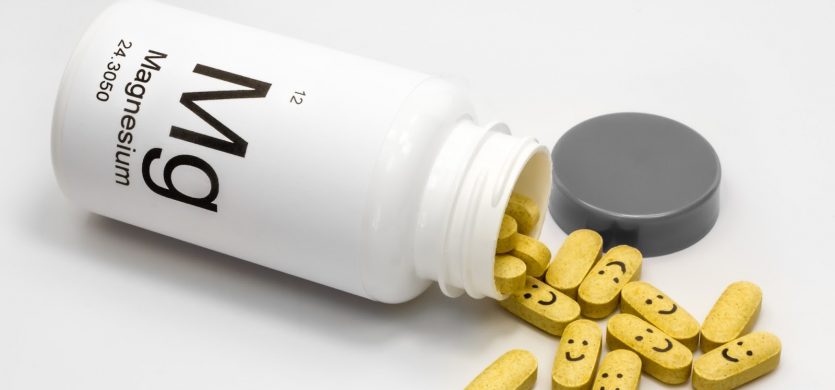
Tips & Tools
Managing your anxiety
Magnesium Deficiency and Anxiety

Magnesium.
A mineral commonly discussed for its role in bone and muscle health. Did you know this mineral also plays an important role on our mental health?
Magnesium deficiency has been linked with several emotional struggles, including generalized anxiety, depression and panic attack disorder. It is no surprise then, that magnesium supplementation has been a recognized homeopathic treatment to relieve the symptoms associated with these various emotional struggles.
Magnesium deficiency has become a national struggle, with up to 70% of North American diets not facilitating the recommended dosage of magnesium per day. Key reasons for this are:
- City and residential water treatment systems, which often remove all minerals from drinking water, including magnesium
- The increase in consumption of refined and processed foods, which all lose their magnesium content during processing
- The increase use of pesticides and fertilizers on crops, which reduces the content of several minerals, including magnesium
Another key player to magnesium deficiency is chronic stress. Unfortunately, stress levels have been on the rise in North America, which makes this matter worse. We just told you magnesium deficiency contributes to many mental health struggles (including anxiety). Now we are telling you chronic stress increases this magnesium deficiency in the body. This is such an important finding, as often times, those who struggle with anxiety or depression also suffer from high levels of stress.
So how can we break the cycle?
Reducing stress or anxiety symptoms is not always easy. However, by controlling your magnesium levels, not only will you eliminate your deficiency and thereby improve your physical health, but you will also help improve your anxiety/depression symptoms and break the cycle!
Magnesium deficiency symptoms vary dramatically according to the person. If you have any concerns about implementing magnesium into your daily routine, speak to a doctor (ie. family doctor, naturopathic doctor, etc.) about having your magnesium levels checked. They can then recommend the appropriate supplementation routine. It is also worth noting that regular strenuous exericse has been shown to deplete magnesium levels through urine and persperation. If you choose to manage your stress and anxiety through regular exercise, be sure to let your doctor know!
In the meantime, you can help support your magneisum levels by eating foods such as: legumes (ie. peas, tempeh, lentils), nuts (ie. almonds, brazil nuts) , seeds, (ie. pumpkin/squash seeds) fish (ie. salmon, mackerel) and whole grains (ie. bran, quinoa). These foods are recommended by the Dieticians of Canada as the best food sources of magneisum.
For more information:
Eby, G.A & Eby, K.L(2006) Rapid recovery from major depression using magnesium treatment. Medical Hypotheses, 67, 362-370
Uwitonze, A.M & Razzaque, M.S Role of Magnesium in Vitamin D Activation and Function (2018). The Journal of the American Osteopathic Association, 118, 181-189
- All
-
29 Nutrition
Nutrition
- 73 Mindfulness and Relaxation
- 27 Student Life
- 8 Exercise
- 51 Treatments & Therapies
- Anxiety Resources

Don't see what you're looking for? Send us an email!
©Copyright 2024 Cam’s Kids powered by Kids Help Phone
Not-for-Profit Organization. B/N: 921508-5
Thanks for visiting Cam's Kids. Please remember...
Cam's Kids is not a service provider.
If you are in crisis, please call 911 or go to your nearest emergency department. For free, confidential counselling, contact Good2Talk or Kids Help Phone.
Post-secondary students: find your local crisis resource here.

